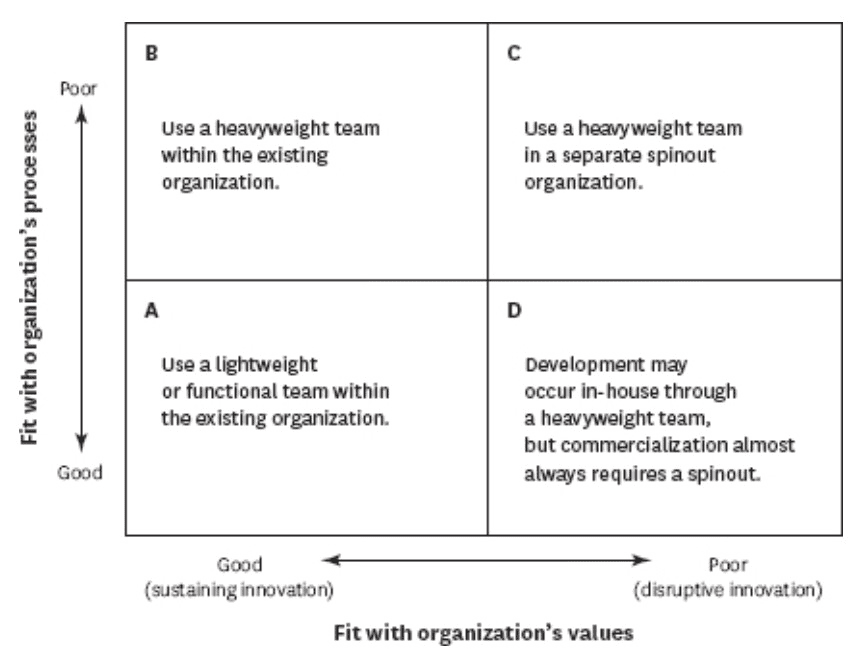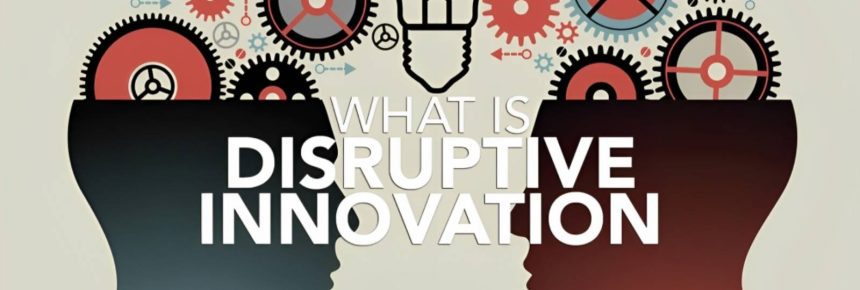Disruptive innovation is the process by which a new technology or business model disrupts the existing market, creating a new product or service that changes the way we do things. In recent years, startups have been at the forefront of disruptive innovation, introducing new ideas and technologies that have transformed industries and created new markets.
One of the most well-known examples of disruptive innovation is Uber. Founded in 2009, Uber created a platform that connects riders with drivers, disrupting the traditional taxi industry. With its easy-to-use app and competitive pricing, Uber quickly gained a large following and became the go-to option for transportation in many cities around the world.

Disruptive innovation is the process by which a new technology or business model disrupts the existing market, creating a new product or service that changes the way we do things. In recent years, startups have been at the forefront of disruptive innovation, introducing new ideas and technologies that have transformed industries and created new markets.
One of the most well-known examples of disruptive innovation is Uber. Founded in 2009, Uber created a platform that connects riders with drivers, disrupting the traditional taxi industry. With its easy-to-use app and competitive pricing, Uber quickly gained a large following and became the go-to option for transportation in many cities around the world.
Another example of disruptive innovation is Airbnb. Founded in 2008, Airbnb created a platform that connects travelers with hosts who offer unique and affordable accommodations. By disrupting the traditional hotel industry, Airbnb has created a new market for people who want to travel but don’t want to stay in a traditional hotel.
Startups like Uber and Airbnb are not only disrupting existing industries, but they are also creating new markets. By offering new products or services that people didn’t know they needed or couldn’t afford before, startups are changing the way we live our lives.

Advantage of disruptive innovation:
One of the key advantages that startups have when it comes to disruptive innovation is their ability to be agile and move quickly. Unlike large established companies, startups are not bogged down by bureaucracy or legacy systems, allowing them to be more nimble and innovative.
However, disruptive innovation is not without its challenges. Established companies often fight back against disruptors, using their resources and influence to maintain their market share. Additionally, many startups fail to take off, with only a small percentage achieving the kind of success seen by Uber and Airbnb.

Despite these challenges, the power of disruptive innovation cannot be denied. Startups are changing industries and creating new markets in ways that were once unimaginable. As technology continues to evolve and new ideas emerge, we can expect to see more disruptive innovation from startups in the years to come.
- Disruptive innovation creates new markets: When a startup introduces a new technology or business model, it can disrupt an existing market and create a new one. For example, Uber disrupted the traditional taxi industry by creating a platform that connects riders with drivers, creating a new market for transportation services.
- Startups are agile and innovative: One of the key advantages that startups have when it comes to disruptive innovation is their ability to be agile and move quickly. Unlike large established companies, startups are not bogged down by bureaucracy or legacy systems, allowing them to be more nimble and innovative.
- Disruptive innovation can lead to significant growth: When a startup successfully disrupts an existing market or creates a new one, it can lead to significant growth. For example, Airbnb disrupted the traditional hotel industry and grew rapidly, becoming one of the largest accommodation providers in the world.
- Established companies may fight back against disruptors: When a startup disrupts an existing market, established companies may fight back to maintain their market share. For example, when Uber disrupted the taxi industry, traditional taxi companies lobbied against it and tried to block its expansion in some cities.
- Disruptive innovation can fail: While startups have the potential to disrupt markets and create new ones, not all disruptive innovations are successful. Many startups fail to take off, with only a small percentage achieving the kind of success seen by Uber and Airbnb.
- Disruptive innovation benefits consumers: When startups disrupt existing markets or create new ones, consumers often benefit from increased competition, better products or services, and lower prices.
- Disruptive innovation can lead to job loss: While disruptive innovation can create new jobs, it can also lead to job loss in industries that are being disrupted. For example, the rise of e-commerce has led to job losses in traditional retail.
In summary, disruptive innovation has the power to transform industries and create new markets. Startups are at the forefront of this disruption, bringing new technologies and business models to the market. While disruptive innovation can lead to significant growth and benefits for consumers, it can also lead to job losses and challenges from established companies. Despite these challenges, the power of disruptive innovation cannot be denied, and we can expect to see more disruption from startups in the years to come.










